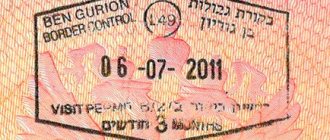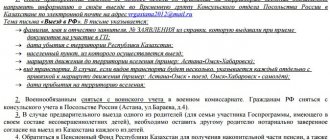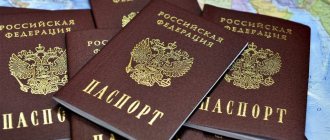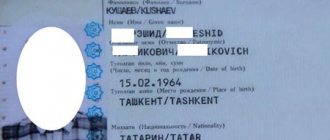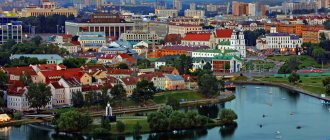Repatriation to Israel is the most popular method of immigration for Jews from all over the world. Over the course of its long-suffering history, the Jewish nation has been subjected many times to various persecutions, bullying, and mass destruction. Many had to hide in different parts of the world to save their lives and the lives of their families. Now Jews are not attacked on the basis of their nationality, and the multi-million Jewish diaspora returns to the Promised Land year after year. Israel is open, and the repatriation program, that is, the return of citizens to their historical homeland, is working. But only persons of Jewish nationality have the right to it.
Climate, economy, country resources
The State of Israel is located in southwest Asia on the eastern coast of the Mediterranean Sea. The main territory of the country is occupied by a high (up to 1000 meters) plateau. There are semi-deserts, deserts and mountains. The climate in the country is relatively mild in winter and dry and hot in summer, as Israel is located in a subtropical Mediterranean climate.
In summer (it lasts from May to mid-October) there is very little precipitation, and a dry hot wind - khamsin - constantly blows. It brings large quantities of sand from the Arabian and Sinai deserts. In summer, the air warms up to +24 – +34 degrees, depending on the region. The hottest temperatures are observed in the south of the country in July. On the sea coast, the high temperature is moderated by the evaporation of water, which falls in the form of dew and compensates for the lack of precipitation.
From mid-October, the rainy season begins in Israel, which continues throughout the winter, sometimes turning into light snowfall. Spring also brings variable rainfall. Temperatures vary by region, but in the main area early spring is quite cool.
Israel's natural resources are neither diverse nor rich. Table salt, bromine, and methane are extracted from the Dead Sea. Throughout the territory there are reserves of sand and building stone. Natural gas, limestone, marble, sulfur, and phosphorites are mined. There are small deposits of iron ore in Israel, but they are practically not used. Proven oil reserves are unproductive, as are deposits of natural asphalt at the bottom of the Dead Sea, which are not mined. There are small layers of peat, but it is used to fertilize the soil.
The problem is the lack of water: 75% of the annual supply is spent for industrial needs. Drinking water is provided to the population of the country by the freshwater Lake Kinneret, groundwater reservoirs, and the waters of the Jordan. The problem is solved by desalinating sea water, purifying used water, and inducing artificial precipitation. The soils, despite their diversity (desert, steppe, red soil, gray soil), are characterized by low natural fertility.
The country's economy is highly developed. Due to scarce natural resources, the country's government had to devote all its efforts to the development of high technology and labor-intensive areas of industry. Instrument making, production of chemicals, medicines, computers and components are developed. The main income for the country's economy comes from tourism and the export of goods. Israel's economy is developing at a rapid pace thanks to Aliyah, because of which highly professional specialists continue to return to their historical homeland.
Population, cultural traditions
As of January 1, 2021, the population of the country is 8,972,000 people. The population density is 265 people per sq.m. As in many other countries, most of the population is concentrated in large cities (Jerusalem, Tel Aviv). The fewest people live in the southern territories.
74% of Israelis are Jews, 21% are Arabs, and the remaining percentage are minorities (Circassians, Armenians). The large number of Jews is due to their migration from the countries of the former USSR, as well as from America and Europe. The indigenous population of Israel is about 60%, the rest are repatriates, as well as migrants who came to the country for permanent residence.
Israel is a multinational state. Most of the people speak Russian, English, and Arabic. The official language is Hebrew.
According to Israel's Declaration of Independence, each community has freedom of religion, creates its own religious council and court, which is recognized at the legislative level and decides all legal and social issues of the community.
The majority of Israelis preach Judaism (about 75%), Muslims are in second place in the number of believers (about 18%), 2% of the population consider themselves Christians, 1.5% are Druze, and approximately 3.5% are undecided. religious preferences.

Prices and standard of living of ordinary citizens
Healthcare in Israel is one of the best in the world. Therefore, people with serious illnesses who cannot be helped by doctors at home are flocking to the country. There is a wide network of various medical institutions, where a large number of highly professional doctors work. More than 96% of the population have compulsory paid medical insurance, which allows them to use a wide range of medical services if necessary. Thanks to a well-developed healthcare system, the standard of living of Israelis is one of the highest in the world. Women live on average 77-79 years, men - 74-76. Israel has very low infant mortality.
The country has significant environmental problems associated with water shortages, air pollution, and industrial emissions.
As for social security, from the age of 18 all Israeli citizens are required to pay insurance contributions to the Ministry of Social Security, from which various benefits are formed (for disabled people, low-income citizens, refugees, the unemployed, pensioners).
The standard of living in Israel is significantly higher than in the Russian Federation. The average salary is around US$3,000 (ILS 10,867). But a person is left with approximately $1,600-1,900 after paying fees and compulsory medical insurance. You can live on this amount, eating well, renting a car and renting housing. In Jerusalem, you can rent a one-room apartment for $800 a month, in the periphery – for $500. Buying real estate is quite problematic. In a remote locality, you can buy a three-room apartment from $100,000, and in large cities it will cost 600-700 thousand.
Product prices vary by region. In the Arab areas and free trade zones you can get cheaper food and drinks. The state controls prices for the basic food basket, but otherwise the cost of products is dictated by the market.
Military service is compulsory for both men and women. You need to be prepared for this when starting repatriation to Israel.
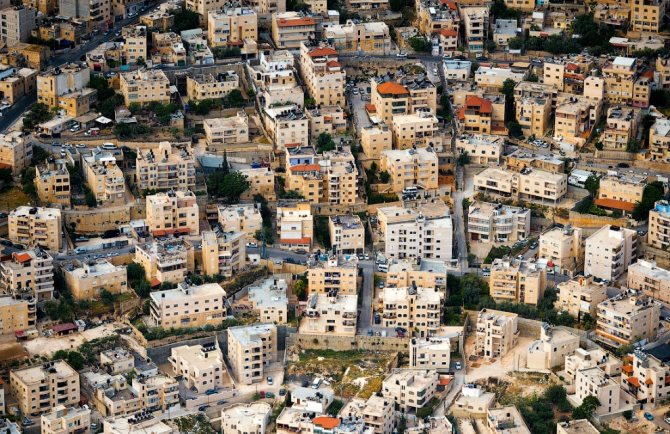
Tel Aviv city, Israel
Who can become a repatriate: moving conditions
According to the Law of Return to Israel, descendants of Jews up to the third generation and members of their families have the right to move to the country. In Jewish culture and law, nationality is passed down through the mother's line. But this does not mean at all that the descendants of Jews on their father’s side do not have such a right. This possibility is provided. The main applicant for relocation will have to document that one of the close relatives is of Jewish nationality.
Who is eligible to move under the repatriation program to Israel:
- Citizens of other countries who have a birth certificate indicating Jewish nationality.
- A citizen of another country if one or both parents have Jewish nationality indicated in their passport. In this case, you must provide a document confirming your blood relationship.
- A citizen of another country if his grandparents had or have documents indicating that they are Jews. The repatriate must have proof of family blood ties.
Children who are not Jewish and whose only great-grandparents were Jewish cannot obtain Israeli citizenship under the repatriation program. In this case, if the child is not yet 18 years old, he can enter Israel with his Jewish parents and live there without citizenship of this country until adulthood. Then he can receive an Israeli passport, renouncing Russian citizenship.
Who is eligible for repatriation to Israel?
According to the Law of Return, the following categories of people have the right to repatriation:
- persons whose documents indicate Jewish nationality;
- persons whose parents' documents indicate Jewish nationality;
- persons who have such a mark in the documents of their grandparents;
- close relatives of a Jew up to the third generation;
- widowers/widows who were married to a Jew.
In all these cases there are exceptions. For example, widows or widowers lose the right to repatriation to Israel if, after the death of their Jewish spouse, they marry a citizen of another country.
If a man's great-grandmother was Jewish, he can appeal to her to gain citizenship. If this man has children under 16 years of age, then, on the one hand, they no longer have the right to repatriation, since their Jewish relative is in the fourth generation. On the other hand, in Israel they have a negative attitude towards family separation, so children will receive a residence permit.
You can also move to Israel for permanent residence if you have Jewish roots in order to reunite with your family. For example, if you are 40 years old and your parents, children or sister live in Israel.
Family reunification is good in Israel
Another nuance is religion. If you come to the consular check with documents according to which your mother, father, and grandparents were Jews, but you have a cross hanging around your neck, you will most likely be refused. Israel takes this issue seriously.
There is also a list of persons who do not have the right to repatriation to the Jewish state:
- members of organizations that threaten peace, public and state order;
- members of organizations that act against Jews;
- criminals who travel to Israel to escape accountability;
- persons who have been deported from Israel.
Let's talk separately about people with a criminal record. Such information will not pass by the consul, even if you were convicted of stealing yogurt from a store. However, this does not mean that you will not be given citizenship: there are many exceptions. They look at the severity of the crime, the statute of limitations and other factors. If a person has been convicted several times, he will definitely be denied.
If you have a criminal record in your past, we recommend that you immediately contact citizenship acquisition specialists or lawyers who will help you prove that you are not a danger to the Jewish state.
To competently solve even the most problematic issues in obtaining Israeli citizenship, contact our specialists. We will find all documents that confirm Jewish origin, and also prove the safety of the new repatriate for the Jewish state. The experience of the Consulting Experts helps to successfully complete all stages of repatriation to Israel.
Main stages of repatriation: procedure
The return of Jews to Israel is called Aliyah. Now young and elderly people are moving to the country for permanent residence, most often from cities with a low standard of living. Among the CIS countries, the largest outflow to Israel comes from Ukraine, Russia, and Belarus. The repatriation of Jews, despite its simplicity, has a certain procedure. The stages of repatriation to Israel are as follows:
- Future repatriates should thoroughly study their ancestry to find out whether there is a Jew in the family in a direct ascending line to the third generation.
- Then you need to collect a package of documentation to confirm your Jewish roots.
- Make an appointment at the Israeli consulate for an interview.
- Arrive at the appointed time with a complete package of documentation.
- After passing the interview, wait for the result, and if it is positive, then you can get a visa and go to Israel.
If, after the interview, the repatriate was refused citizenship, you can re-apply six months after receiving the refusal. Upon arrival, repatriates almost immediately receive the status of a citizen, that is, they are endowed with all the rights that native residents have.
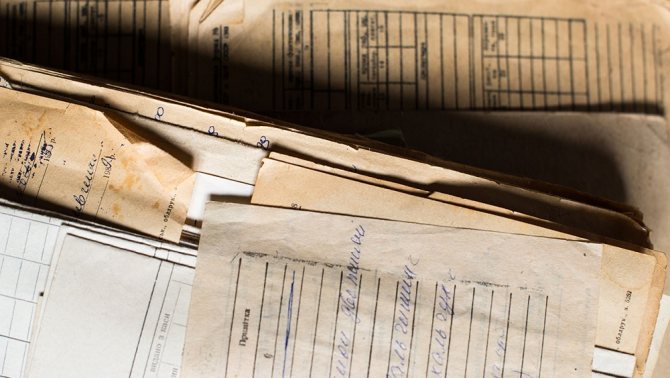
Is it worth repatriating to Israel?
High standard of living compared to Russia and the countries of the former USSR, the Mediterranean, Red and Dead Seas, the absence of a gloomy and slushy European winter, world-famous attractions, magnificent nature, tasty and healthy food, a huge number of “goodies” for repatriates in the first years life in the Country, the possibility of visa-free entry into Europe - it would seem, what doubts could there be? However, there are no ideal countries. Israel is a difficult country, with its own specifics. Life there can also be difficult, or at least not as rosy as in the colorful brochures of the Sokhnut and advertising videos for tourists.
Of course, it is impossible to predict exactly what your repatriation and life in the country will be like. However, before deciding to move and starting preparations for consular checks, it is advisable to clarify for yourself and your family members why you are moving. Also ask yourself:
- Are we ready to leave six months after receiving the visa?
- Honestly answer the question, “do we want to live in Israel or just get citizenship”?
- Is your profession in demand in Israel? Are you ready to learn something new if necessary?
- What to do with real estate if you move?
- Do we have a financial cushion? In what size? Do you have passive income?
- Are you prepared for a temporary loss of social status and a decrease in your standard of living?
- Are you ready to learn Hebrew? What languages do you know besides your native one?
- Do you have pets? Are you prepared for the costs of transporting and maintaining them in Israel?
If you have answers to most of these questions and you feel that repatriation is the right and promising path for you, start collecting documents) Most likely, something will still not go according to plan, but that’s what’s wonderful about moving to another country: you you can start anew and get to know a new version of yourself))
Registration of a residence permit: conditions, procedure
Under the repatriation migration program, obtaining a residence permit in Israel is much easier than through marriage or purchasing real estate. You just have to prove your Jewish origin. The verification procedure is strict, so it is important to check all documents as thoroughly as possible.
The list includes:
- application form;
- passport photo (color) 30 x 40 mm format, 1 copy for each repatriate;
- originals of all passports (the foreign passport must be valid for at least 6 months after receiving the visa);
- originals of birth certificates of the potential repatriate and all his relatives traveling to Israel with him (wife, children), birth and marriage certificates of parents or grandparents of Jews.
Only one proof of Jewish nationality is needed. You should not collect the entire pedigree if the birth certificate already states the nationality “Jew” and the Jewish affiliation of the mother or father or both parents is noted.
Advice! If Jewish ancestry cannot be verified using a birth certificate, other documentary evidence must be provided. These can be various archival documents, Soviet passports, extracts from house books, work records, military IDs. Any paper, even taken from an old home archive, will not be superfluous when submitting documents.
You should also take care to obtain a certificate of no criminal record. As such, it is not on the list of mandatory documents, but in practice it may be required. Do not be alarmed if you had a criminal record, but it has already been expunged. This fact will not become an obstacle to repatriation.
The collected package of documents must be brought personally to the Israeli Embassy in Moscow. But for citizens living in remote provinces, there is another opportunity to submit papers. We need to wait for the Israeli consul to arrive in the city. Typically, consuls only make work trips to big cities once every few months, so it’s worth making an appointment in advance.
According to the law on the repatriation of Jews to Israel, the submission of all documents is carried out only in the personal presence of all future emigrants. There are no exceptions even for small children.
The repatriate must approach the interview with all responsibility. You should think through all your answers to the expected questions of the consuls in advance. This is not a simple formality, but a very responsible procedure. The consul will ask about all areas of the potential repatriate's life. But first of all, the questions will concern the attitude towards religion, the reasons why a person wants to move to Israel for permanent residence, personal plans for future residence, study or professional activity in the Promised Land.
Representatives of the Jewish nation are especially sensitive to religious issues. Jewish mothers must confirm in words or in a statement that they are Jews. But this does not apply if the person is an atheist. Jews on the paternal side can profess any religion.
After the interview, you must wait for the consul's response. If the application is approved, a special repatriate visa is issued, which will be valid for 6 months. During this time, you should go to your historical homeland. A stamp with the inscription “For living abroad” is affixed to the foreign passport and a visa is affixed.

What documents are needed for repatriation to Israel?
Documents are divided into two types: a general package of documents and papers that prove your Jewish nationality and the right to obtain citizenship.
The general package includes the birth certificate of all family members, close relatives, passports, work records, military IDs, and so on. A complete list will be provided either at the repatriation centers or at the embassy.
Documents that prove Jewish nationality are not 100% required. The passports of grandmothers and great-grandmothers, which indicate that they are Jews, their birth certificates, marriage certificates, driver’s licenses, etc. are suitable here. Here, the more evidence you present, the greater the chance of obtaining citizenship.
Permanent residence and citizenship: conditions, documents
For repatriates, there is a simplified option for obtaining Israeli citizenship. Having received a special visa to the Russian Federation, they travel to Israel and obtain a permanent residence permit. Permanent residence is valid for 2 years, during which time citizenship must be obtained.
As soon as new Israeli citizens fly into the country, they are again subject to thorough screening. At the Ministry of Aliyah, they are given a free SIM card for a phone, a certain amount of money for the first time (“lift”), and medical insurance. Then they apply for an internal passport - darkon, which is issued 3 months after repatriation.
Having a repatriate visa reduces not only the time required for obtaining citizenship, but also the list of required documents. The main one is a certificate of Jewish nationality. You will also need a passport photo and an application to receive it.
To assist in collecting documents for Jews who are resettled under the citizen repatriation program to Israel, there is the Jewish Agency Sokhnut. Its employees help organize the repatriate’s flight to his destination as part of a group, transport him to the airport, meet him upon arrival, and support him in the first months of life in the Promised Land while he adapts and finds work.
IMPORTANT! A Russian cannot enter his home country with an Israeli passport if he has a second Israeli citizenship. In Russia, dual citizenship is not officially allowed, so a Russian can only enter and exit with his Russian passport. Entry and exit via darkon is considered an offence.
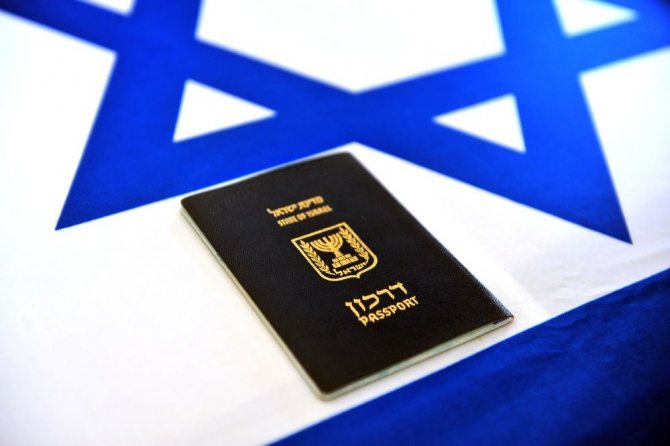
Main provisions of the Law “On Return”
This Law defines the basic rules for the repatriation of Jews. The document consists of only 6 articles, on the basis of which the entire procedure for the return of Jews to their historical homeland is based. Article No. 1 clearly defines the right of every Jew to repatriation. At the time of the formation and discussion of the document, a proposal was made to make two amendments:
- A Jew living in the State of Israel cannot under any circumstances be expelled from the territory of the country.
- Article No. 1, which states that every Jew has the right to immigrate to Israel, cannot be changed even through a vote of the Knesset.
The additions proposed by the opposition were not supported by the general mass of parliamentarians. As a result, both edits were rejected.
Article 2 – who is issued a repatriate visa
A repatriation visa is a document that gives the right to a foreigner who has proven his Jewish origin to enter Israel. The form is issued after passing the Consular Check. Russians receive permission from the consul at the Israeli Embassy in the Russian Federation in Moscow.
According to Article 2 of the Law of Return, a visa permit can be issued to any person who is a Jew and wishes to move to the Promised Land. Exceptions are those persons who may pose a security threat to the citizens of Israel and the country as a whole. A repatriate visa will be denied to applicants for Israeli citizenship who have a criminal record, as well as applicants who, during a medical examination, are found to have infectious diseases that pose a danger to public health.
Article 4 – who can claim repatriate rights
The document provides a clear definition of the concept of “Jew”. This is a person born of a Jewish mother or a person who has undergone conversion. An important condition is that a person cannot profess any other religion other than Judaism.
This definition of Jewish nationality has given rise to a number of misconceptions about the category of persons entitled to repatriation. For example, some people are confident that the right of return is reserved only for halakhic Jews.
The Law of Return establishes a clear list of persons entitled to automatically obtain Israeli citizenship:
- Direct descendants, that is, children born from a Jewish father.
- Grandchildren of persons of Jewish nationality (if the grandmother or great-grandmother is Jewish).
- Persons whose nationality column in an official document is written as Jew (Jewish).
In addition, by virtue of this law, the possibility of repatriation is provided to spouses of the above categories of persons and their children. The exception is for persons who, due to their own convictions, voluntarily changed their professed religion.
Return to Israel assistance programs
Jews are very responsible when it comes to the resettlement of representatives of their nation to their historical homeland. They create many programs that allow new citizens of Israel to adapt to living conditions, learn about religion, and the cultural values of the country. Representatives of the Jewish nation are helped by the organizations NAALE, MASA. Youth, children, middle-aged and elderly people can participate in such programs.
In 2021, the following programs are especially popular:
- adaptation for senior citizens of retirement age;
- repatriation program to Israel for youth and children's education;
- professional activity, employment;
- adaptation for single Jews.
The state provides all possible support in the development and implementation of programs, so new projects are constantly appearing. Thus, it is worth noting the “Perspective” program. It involves repatriates aged 33 to 42 with higher education. The duration of the program is 5 months, during which participants are taught to speak Hebrew fluently, are introduced to the way of life of Jews, and are taught certain professional activities. The “At Home Together” and “First Home in the Homeland” programs have been created for Jewish families.
Main repatriation programs to Israel
Currently, there are different repatriation programs. They are being developed and successfully implemented with the support of the Israeli government. And people who have returned to their historical homeland should definitely familiarize themselves with these proposals.
Thus, in Israel there are adaptation programs designed specifically for different categories of people. For example, there are separate offers that can be taken advantage of:
- pupils;
- students;
- pensioners;
- people who want to start a family;
- specialists planning to improve their qualification level.
The Perspective repatriation program to Israel is in great demand. It can be used by Jews who have graduated from higher educational institutions in other countries to further develop their professional qualities. However, the age restrictions for participants in this program are quite strict: only persons aged 33 to 42 years are accepted.
There are also more highly specialized programs in the country of the Jews. For example, we can talk about programs for the return of nurses and brothers to their historical homeland. Here the requirements for repatriates are as follows: work experience in the specialty - from 1.5 years, and age - up to 33 years.
Resettlement programs from Ukraine, Russia and CIS countries
The share of those wishing to move from the countries of the former USSR has not yet dried up. Especially many Jews are moving from Ukraine due to the complex policies of the country’s government. For Russians, Ukrainians, Belarusians with Jewish roots, as well as for other repatriates, the same programs for simplified acquisition of Israeli citizenship (for pensioners, singles, children) work. You just need to choose the right one and contact Sokhnut, whose employees will explain how to do everything correctly.
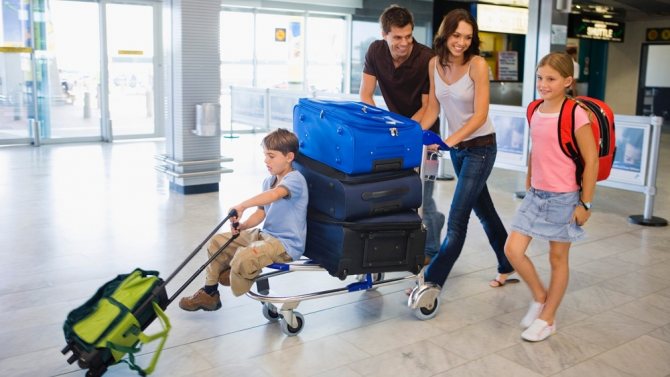
Repatriation to Israel, where to start
The procedure for repatriation to Israel consists of stages that are thought out in detail in Sokhnut.
The procedure consists of steps that must be done in the following sequence:
- Collect the entire package of necessary documents.
- Pass diplomatic checks and obtain a visa. It is better to submit documents 6 months before the date of the planned move.
- Contact the Sokhnut agency, select the repatriation program, city of residence, date and time of flight. Sokhnut employees will contact the municipality of the new place of residence, help you move to Israel, enroll children in kindergarten and school, and resolve other everyday issues.
- Sokhnut staff will help you book a ticket to Israel. They will meet the repatriate at the airport, help pass through passport control, give the family a Teudat Ole, and give each family member over 16 years of age a Teudat Zeut. They will provide first financial assistance in cash, SIM cards and free minutes. Register with the health insurance company. The repatriate will take a free taxi to his place of residence.
Already at the new place, the repatriate takes the following steps:
- opens a bank account;
- registers with the local branch of the Ministry of Repatriation;
- connects to a mobile operator;
- enrolls in Hebrew courses;
- assigns the child to kindergarten or school;
- arranges benefits for land tax;
- confirms existing documents: driver’s license, diplomas, etc.
Stages of registration
1 Preparation of documentsYou prepare a complete package of documents, we assist and check it. We make an appointment for an interview at the Israeli consulate.
2 Interview in Russia You are undergoing an interview at which the issue of the possibility of your repatriation to Israel is discussed.
3 Obtaining a visa for 6 months. Based on the results of the interview, you receive a visa for the repatriation procedure, which will take no more than 2 days in Israel
4 Visiting the Ministry of Internal Affairs in Israel You fly to Israel and receive an internal identity card and a repatriation certificate. After which, you contact the Israeli Ministry of Internal Affairs with a request to issue a biometric passport.
5 Receiving Darkon We receive the passport and give it to you.
Benefits and allowances for repatriates
Israelis care about their new fellow citizens. For 6 months, repatriates are supported financially. 2,000 shekels are allocated from the absorption basket, free medical insurance is provided for the first time, and Hebrew courses are provided. And after a year, you can receive a “foreign passport” of an Israeli citizen, with which you can travel around the world, visit your homeland, and stay in almost 100 countries without a visa.
State authorities provide certain benefits and benefits in Israel for repatriates at the initial stage after relocation.
This list includes:
- exemption from tax on pension contributions;
- absence of duties on funds coming from other states;
- tax exemption for entrepreneurs.
Such preferential conditions, according to the Israeli authorities, encourage young entrepreneurs to transfer their business to Israel and develop the economic potential of their historical homeland.
Every Israeli citizen pays for health insurance. This is the debt of even the unemployed. But the repatriate does not pay it in the first year of life in Israel. If he then leaves the country, then upon returning he will not be able to immediately go to the hospital: he will first have to pay off the debt to medicine during his absence. There is another option - wait six months until the right to use medical services is restored. If, while not in Israel, a citizen pays for his insurance, upon arrival he will be able to immediately use medical services.
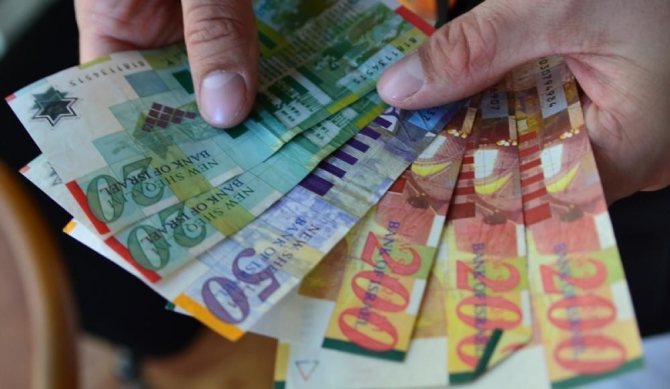
Main stages of repatriation
If you have reasons and a desire to move to Israel, it is important to approach the issue carefully.
Despite the state's openness to Jews, authorities carefully study each candidate for resettlement. The most important starting step is collecting a package of documents. The list will be presented in detail below. Please note that it is recommended to first visit the territorial repatriation office of the embassy. The fact is that, depending on the situation, certain certificates may be required, for example, if a citizen falls under special programs.
After collecting documents, an interview with the consul is held. You should behave with restraint and prove your point of view with documents, not words. If the answer is positive, a visa is issued for permanent residence in Israel. It is valid for six months, during which time you must enter the territory of the state.
Attention! The repatriation form must be filled out by all citizens over seventeen years of age. It consists of twelve sheets, you must answer all the questions.
Package of documents
The collection of documents plays an important role in the repatriation process. The more materials confirming connections with Jews can be provided, the better. The following may be attached as significant documents:
- Birth certificates indicating Jewish nationality. Metrics from the Soviet period, for example, those belonging to grandmothers, are also suitable.
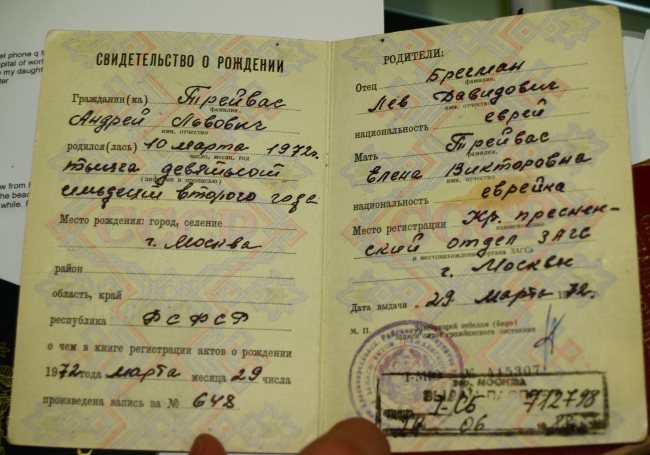
Sample birth certificate - Soviet documents of parents and older generations, which indicated their nationality - passports, military IDs.
So, the main difficulty is to collect documents indicating membership in the Jewish community. Old photos, certificates of burial in a Jewish cemetery, and extracts from house books are accepted as additional arguments.
In addition to the materials giving the right to repatriation, you will need to generate a standard set of documents, including:
- valid identification documents - passports, birth certificates (for children under fourteen years of age);
- papers indicating family or marriage ties between all citizens planning to move;
- diplomas and other materials reflecting the level of education.
Read also: Is it worth moving to Kaliningrad
After collecting a complete package of documents, you can sign up for an interview at the consulate. Often the decision is made not on the basis of communication, but at the stage of studying the papers.
It is important to know! Having relatives in Israel will simplify the procedure for submitting documents and obtaining permission. If they can send a copy of their passport, and also indicate their address and telephone number, then this information must be added to the package of materials.
Passing consular checks
Consular verification means personal communication with an Israeli representative authorized to issue long-term visas. The main task of the employee is to determine whether the citizen has the right to repatriation. This is done primarily through analysis of the provided documentation.
Assistance upon arrival at the airport
Support for immigrants does not limit itself to advisory assistance in collecting documents, but continues at further stages. After purchasing plane tickets, you should notify the organization about the date of arrival, in which case representatives of the agency will meet the arrivals at the airport.
Next you will need to go through passport control - a corridor for foreign citizens and a short conversation with the migration service. Based on the results of the conversation, a basic package of documents required for living in the country and the first allowance are issued.
Healthy! A free taxi provided by the authorities takes repatriates from the airport to their place of residence.
Repatriation of minors
Children who are direct descendants of Jews up to the 3rd generation can benefit from repatriation according to the usual rules. In this case, they receive an indefinite permanent residence permit.
If a minor is a descendant in the 4th generation, he has the right to enter Israel with his parents and live there stateless until he reaches adulthood. As soon as he turns 18, he must obtain an internal Israeli passport, regardless of which country is indicated on the birth document.
There are Russian schools in Israel, and it is possible to confirm a Russian certificate by passing an exam. Free Hebrew courses and various NAALE adaptation programs are provided for young migrants.
Repatriation programs
In order to facilitate the move and speed up adaptation to the new place, special programs have been organized for migrants. They not only allow you to study the cultural characteristics of Israel, but also contribute to the integration of citizens into communities.
The programs are implemented by territorial departments of various Jewish organizations and have different focuses. Some are aimed at youth and young families, others at pensioners and the elderly.
Healthy! Israeli government authorities actively support repatriation programs. Particular attention and the greatest funding are given to young people who want to connect their destiny with Judaism.
Programs for children and youth
The Israeli authorities are very open to children who moved with their parents and young people who organized their own resettlement.
Free Hebrew courses are provided for young migrants for five months. Many educational programs at universities are aimed at visitors from the CIS countries. Parents with small children do not have difficulties enrolling their child in kindergarten or school. If the child does not know the language, then it is better to give preference to Russian-language schools.
Absorption programs
Absorption programs are aimed at integrating migrants into a new society.
People living in Israel volunteer and offer their help to displaced people. It is mainly based on familiarization with cultural characteristics, assistance in movement and orientation. Both single migrants, for example, elderly people, and entire families can take part in the program. The main thing is the desire to interact with local residents and openness.
Healthy! Religion plays an important role for Israelis. Absorption programs are often financed by religious communities, so professing Judaism, although not a mandatory condition, is preferable.
Program "Perspective"
One of the most successful repatriation programs is Perspective. It is aimed at young professionals from different fields. The participants have the following requirements:
- age from 33 to 42 years;
- completed higher education;
- availability of the right to repatriation.
Read also: Is it possible to have two citizenships in Russia
As part of the five-month course, people are introduced to the peculiarities of life in Israel, helped to master the language and decide on a professional activity.
Program for doctors
Israel has very attractive working conditions for medical workers; it is no coincidence that the level of medicine in the state is at a very high level. The authorities continue to attract specialists in this industry. There is a special program for young people with specialized education. Requirements for participants:
- age up to 35 years;
- availability of a diploma from a medical university, minimum level - nurse or nurse;
- work experience in the specialty for at least one and a half years;
- knowledge of English;
- right to repatriation.
To participate in the program, you must collect a package of documents, the list of which can be clarified at the consulate, and send it to Israel. Based on the materials received, authorized specialists will decide whether to include the applicant in the list of participants.
Repatriation for pensioners
Elderly citizens often migrate to the Promised Land. Elderly Jewish repatriates are entitled to receive pension payments. Pensions in Israel for repatriates consist of old-age payments and a funded part. The longer the work experience, the higher the payment amount will be.
Elderly non-Jews can also move for permanent residence to their child who has Israeli citizenship. But for this it is necessary that the applicant meet certain criteria. Namely:
- he must be alone, there should be no children or other close relatives in Russia who agree to care for elderly citizens;
- a mandatory requirement is the age limit: men must be at least 67 years old, and women - 62 years old;
- It is important to document that children or grandchildren who are Israeli citizens are willing to accept their elderly relatives, especially if they have a disability.
After moving, pensioners will not have the right to work or receive health insurance, so the entire burden of financial responsibility will fall on their son or daughter. They must be prepared for this.

Who is eligible
It should be noted that the repatriation program to Israel provides for a strictly limited list of persons who have the right to use it. These include, first of all, descendants of Jews up to the third generation who are citizens of the Russian Federation. Moreover, their family members also have this right.
At the representative office of the Israeli diplomatic mission in Russia, you will certainly need to provide documentary evidence that the person has grounds to participate in the repatriation procedure. When ensuring this, it should be remembered that nationality, in accordance with Jewish traditions and law, is transmitted through the maternal line, while the rules of aliyah allow participation in the program even for those who received their Jewish roots from their father or grandfather.
Reviews about repatriation to Israel say that this procedure is also possible for those minors who have Jewish relatives in the fourth generation. In this situation, experienced repatriates recommend that they travel to Israel with their parents as family members (parents must travel as repatriates). Such persons, upon reaching the age of majority, will have the opportunity to obtain Israeli citizenship legally, but subject to renunciation of their previous citizenship.
Repeated repatriation to Israel
According to the law on repatriation to Israel, in the event of a long absence (more than 2 years), the migrant ceases to be considered a resident of the country. This is not a basis for deprivation of citizenship, but even the loss of the status of a permanent resident of the Promised Land imposes a large number of restrictions on a person, and re-restoration of all rights takes from several months to a year or more, which is a big disadvantage. And at the same time, you will need to collect a large amount of evidence of residence in Israel. The repatriate will be asked for a rental agreement, a certificate of employment, a bank account statement and many other documents.

Repeated repatriation
A long departure from Israel after receiving a long-term visa deprives the citizen of a number of benefits.
Long-term absence means living in another state or several for more than two years. Read also: Russian Language Certificate
It is possible to participate in repatriation again and restore lost privileges, but this process is quite labor-intensive and long. The authorities are doing everything to ensure that people who move to Israel remain there for life.
Employment in Israel
The program for the repatriation of Jews to their historical homeland presupposes the availability of certain benefits for those categories of citizens who possess professions that are in short supply in Israel. These are engineers of various profiles, doctors, banking specialists, IT specialists, and experienced lawyers. Programs for mastering spoken Hebrew, diploma confirmation, and advanced training are provided for them. Financial assistance is also provided for students of any specialty and graduate students working on a dissertation.

Repatriation program "Perspective"
It should be noted that young people who are able to establish themselves as specialists in a certain field have the right to repatriate to Israel. In order to take part directly in it, you must meet certain requirements. These include age (from 33 to 42 years), the right to repatriation and a diploma of higher education in any specialty.
Initially, participants in such a project are invited to Israel for a five-month stay. During this period, they have the opportunity to learn Hebrew, as well as the main features of life in the country. In parallel with all this, each participant receives decent knowledge focused on working in the country in question in a specific profession.
Work visa to Israel
To obtain legal work in Israel, migrants must obtain a B1 visa. It is issued to people aged 23-55 years. Repatriates who have obtained permanent residence or citizenship do not need a visa. They are considered full citizens of Israel and get jobs like all Israelis. Unemployment in Israel is only 4%, so finding a job there is quite possible.
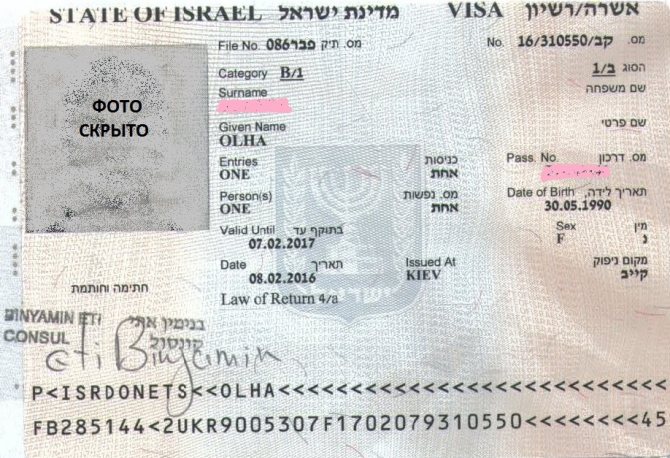
Work visa to Israel
Flight to Israel
After all the procedures necessary for repatriation to Israel have been completed and a visa has been received, the Russian must move to the country within six calendar months. In the comments left by those who have gone through this process before, it is often mentioned that in order to facilitate it and clearly plan all actions, a migrant can visit a special agency created to assist representatives of Jewish nationality - Sokhnut. It should be noted that branches of this agency operate not only in Russia, but also in Belarus, Ukraine, as well as in many other countries. Moreover, those persons who wish to repatriate from Belarus to Israel can arrange transportation from their place of residence to the airport. These agencies can also assist in organizing departures, providing free plane tickets to your destination, registering documents upon arrival in Israel, as well as providing a meeting upon arrival in the country. In addition to all this, according to people who have previously used the help of such an organization, its representatives provide all possible assistance to those people who have just moved to Israel and need housing, work and other types of support.
Cities where repatriates should live
To settle in Israel, repatriates need to listen to themselves, based on their needs. It is important to take into account facts such as proximity to work, cost of living, desire to live in a large city, and to be closer to the Russian-speaking population. Popular cities are Tel Aviv, Israel. But life there is quite expensive. If you want a more relaxed environment, you should pay attention to Haifa, Acre, Eilat, Bet Yam, where you can rent an apartment inexpensively and join the large Russian diaspora.
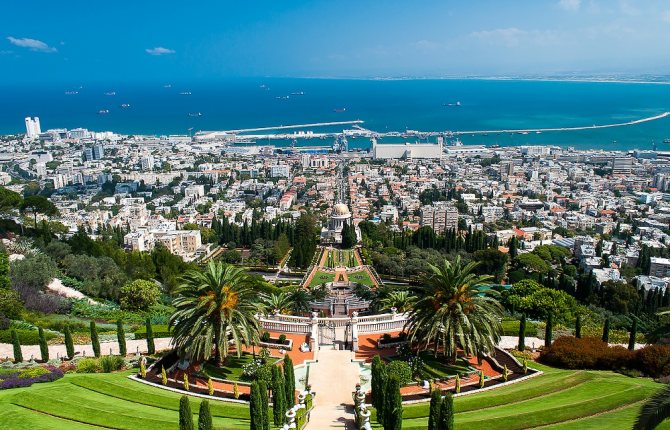
Haifa city, Israel
Rules for repatriation to Israel
The attitude towards Russian-speaking visitors is friendly. But for communication it is better to choose the secular population. As for Orthodox Jews, they do not particularly favor immigrants. You can keep your Russian passport with you, just like your Israeli one. You just need to inform the Russian Ministry of Internal Affairs that you have received a second citizenship.
Israeli law enforcement agencies strictly enforce the laws, so it is better not to provoke them. They do their duty, keep adults and children safe, and deserve respect.
How do Russians live in Israel?
Migrants from the former USSR who moved to Israel under the repatriation program note in their reviews that life in this country is an order of magnitude higher than in their homeland. Good salaries, benefits and allowances for various groups of the population, a high level of medicine - all these advantages attract people of all ages to Israel. Employees of Sokhnut and other similar organizations will help you adapt to the country, find a job, and place your child in a kindergarten, school, or university.
Jews are very sensitive to the resettlement of Jews to Israel, to the preservation of their nation, its traditions, and observance of canons. They strive to return to their historical homeland the maximum number of people or their descendants who, due to current life circumstances, left Israel. For this purpose, repatriation programs that are attractive to all age groups of the population are being created. But at the same time, the Israeli authorities are also fighting for the “purity of the nation,” carefully checking all candidates for acquiring citizenship of the country. Therefore, if you decide to move to Israel for permanent residence, you should carefully prepare for this process by collecting all the necessary evidence.

Repatriation programs for families and individuals
Of particular interest to persons intending to obtain the right to permanent residence in Israel are repatriation programs intended for families and singles. As an example, here are two popular programs in this area of the Promised Land:
- “At Home Together” program. Volunteers come to the aid of people who have just returned to their historical homeland and help them understand the organizational, bureaucratic, cultural, religious, transport and other aspects of life in the country. Also, within the framework of this program, it is planned to visit families that have already fully adapted, maintain communication with them, and perhaps even develop subsequent friendships.
- “First Home in the Motherland” program. Its essence is to provide housing in a special agricultural commune. In Israel they are called kibbutzim. Property is common here, and there is equality in labor and consumption. The conditions are very good to begin adaptation and immersion in a new language environment.

